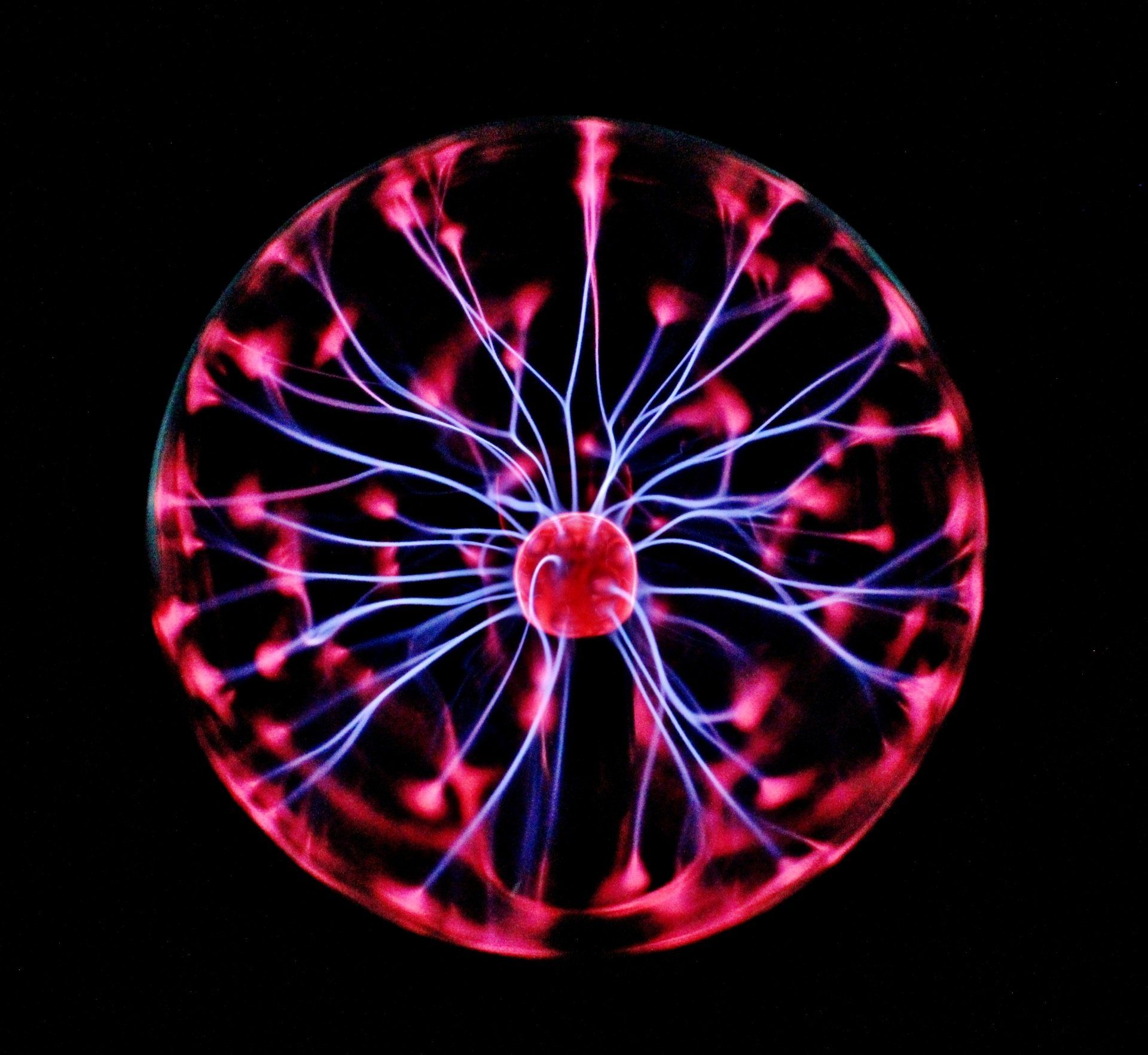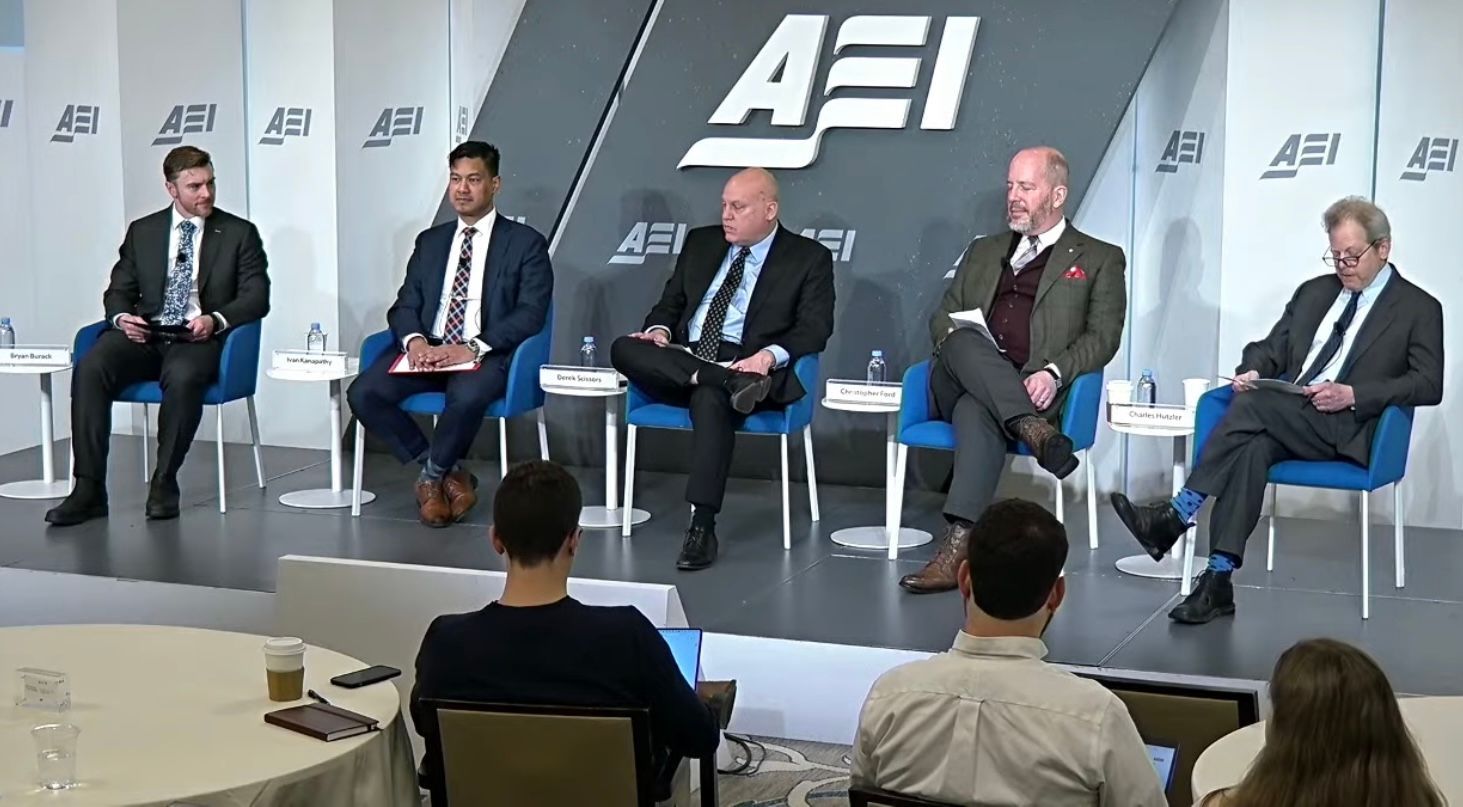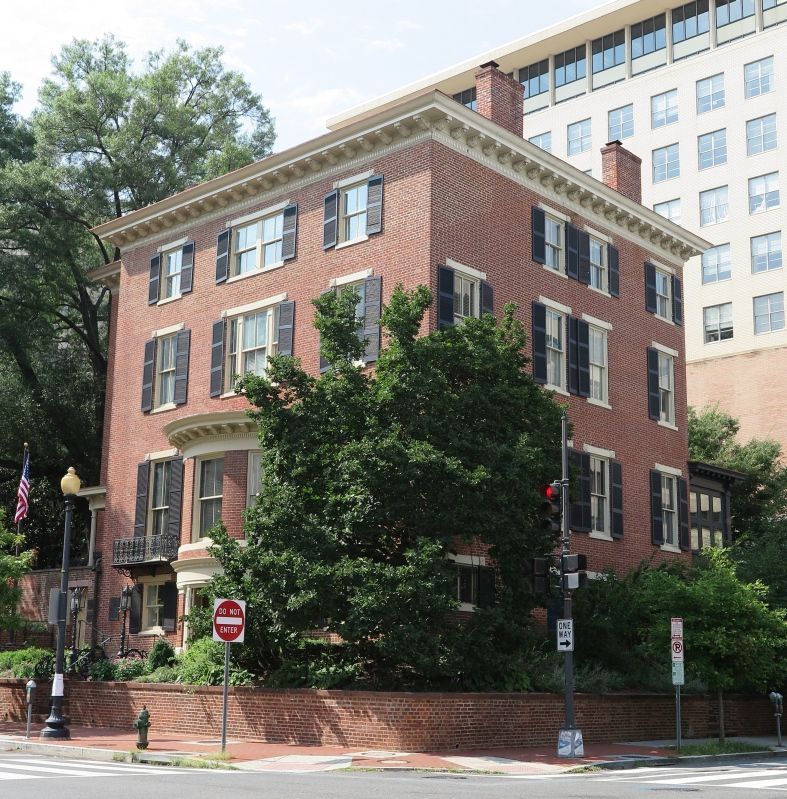The Hon. Christopher A. Ford
New Paradigms Forum -- International Security Policy Since 2009
NPT Article IV: Peaceful Uses of Nuclear Energy
Note:
The following remarks were delivered on May 18, 2005, by Dr. Ford when serving as Principal Deputy Assistant Secretary of State in the Bureau of Verification and Compliance, to the 2005 Review Conference of the Treaty on the Nonproliferation of Nuclear Weapons in New York.
Madam Chair, past Review Conferences have focused considerable attention on the question of whether States Party were doing as much as they could to facilitate the peaceful uses of nuclear energy, as called for in Article IV. This Conference, like its predecessors, should address that question, and the United States looks forward to a fruitful discussion of the topic. However, given the crisis of noncompliance now confronting the NPT [Nuclear Non-Proliferation Treaty] and the spurious claims by certain states that other states are wrongfully seeking to halt their legitimate nuclear programs or access to certain nuclear-related technologies, this Conference must address in depth all aspects of Article IV.
As we all know, Article IV of the NPT contains two very important provisions. The first provision, contained in Paragraph 1 of Article IV provides that "nothing in this Treaty shall be interpreted as affecting the inalienable right" of States Party to pursue the use of nuclear energy "for peaceful purposes" and "in conformity with articles I and II of the Treaty." Thus, States Party to the Treaty accept the condition that their nuclear activities must comply with Articles I and II of the Treaty. The second provision is Paragraph 2 of Article IV, which calls upon all parties to the treaty to facilitate the "fullest possible exchange of equipment, materials and scientific and technological information" on peaceful uses of nuclear energy. Clearly, any right to receive benefits under Article IV is also conditioned upon the fulfillment of the Treaty's nonproliferation obligations.
But the language of Article IV speaks to more than just access to benefits; it also places specific responsibilities upon suppliers. As the United States has pointed out in its statement in Main Committee I regarding Articles I and II, Article I requires the nuclear-weapons States not in any way to assist, encourage or induce any non-nuclear-weapons State to manufacture or otherwise acquire nuclear weapons or other nuclear explosive devices. To fulfill these obligations, the nuclear-weapon States must establish and implement comprehensive and effective export controls. They also should halt nuclear assistance to violators of Article II. Moreover, through appropriate measures, they should seek to halt the use of nuclear material and equipment that is acquired or produced by an NPT state in connection with a material violation of the NPT's nonproliferation undertakings, and should require the elimination or return of those items to the original supplier.
Article II of the NPT requires the non-nuclear-weapon States not to manufacture or otherwise acquire nuclear weapons or other nuclear explosive devices and not to seek or receive any assistance in the manufacture of nuclear weapons or other explosive nuclear devices. As the United States outlined in its Main Committee I statement, fulfillment of this obligation requires that non-nuclear-weapon States refrain from activities designed to develop a nuclear weapons capability. Furthermore, they should provide transparency into their activities that is sufficient to demonstrate their peaceful intent, and should have in place the necessary laws and regulations to enforce their Article II obligations. There are a number of counter-indicators to peaceful intent that other states should consider to be warning signs of a nuclear weapons purpose - and thus of a possible Article II violation. These warning signs include the presence of undeclared nuclear facilities, procurement patterns inconsistent with a civil nuclear program (e.g., clandestine procurement networks, possibly including the use of front companies and fraudulent documentation); security measures beyond what would be appropriate for peaceful, civil nuclear installations; a pattern of Article III safeguards violations suggestive not of mere mistake but of willful violation; systematic deception and denial efforts aimed at concealing nuclear activities from the IAEA [International Atomic Energy Agency]; or a nuclear program that has little coherence for peaceful purposes but great coherence for weapons purposes. Such danger signals are relevant for all States Party, all of whom have an interest in strict compliance with the NPT. These warning signs have additional relevance for supplier countries, which should take steps to verify the intent of each of their potential clients so that they do not place themselves in danger of an Article I violation or of taking actions that are otherwise contrary to the NPT's core nonproliferation and security purposes.
Some States Party have argued that Paragraph 1 of Article IV provides an unconditional right to nuclear energy for peaceful purposes -- and that steps by other states to deny them some technology somehow violates their NPT rights. Nothing could be further from the truth: by agreeing to the NPT, countries have agreed that their nuclear activities must be in "conformity with articles I and II" (as well as with Article III). Article IV does not provide States Party that have violated the nonproliferation provisions of the Treaty any protection from the consequences of breach, including the imposition of measures by other states, jointly or separately, against their nuclear programs. States Party that claim it does are quite wrong.
Let me now turn to Paragraph 2 of Article IV. Paragraph 2 of Article IV calls on parties "to facilitate ... the fullest possible exchange" of technology for the peaceful uses of nuclear energy. The use of the term "fullest possible" is an acknowledgement that cooperation may be limited. Parties are not compelled by Article IV to engage in nuclear cooperation with any given state -- or to provide any particular form of nuclear assistance to any other state. The NPT does not require any specific sharing of nuclear technology between particular States Party, nor does it oblige technology-possessors to share any specific materials or technology with non-possessors. Indeed, to conform both to the overall objective of the NPT -strengthening security by halting nuclear proliferation -- and to any Article I and III obligations, supplier states must consider whether certain types of assistance, or assistance to certain countries, are consistent with the nonproliferation purposes and obligations of the NPT, other international obligations, and their own national requirements. They should withhold assistance if they believe that a specific form of cooperation would encourage or facilitate proliferation, or if they believe that a state is pursuing a nuclear weapons program in violation of Article II, is not in full compliance with its safeguards obligations, or is in violation of Article I.
Let me underscore the U.S. view: NPT parties have the responsibility to implement Article IV in such a way that not only preserves NPT compliant parties' right to develop peaceful uses of nuclear energy, but also ensures against abuse of this right by States Party pursuing nuclear weapons capabilities. Thus, nonproliferation efforts such as export control restrictions, Nuclear Suppliers Group supply guidelines, end-use restrictions, interdiction measures such as the Proliferation Security Initiative, the imposition of national or international sanctions in response to nuclear-related proliferation problems, and efforts to restrict the spread of proliferation-sensitive enrichment and reprocessing technology -- none of these are in any way inconsistent with Article IV.
Some have asserted that any State Party in demonstrable compliance with the NPT has a specific right to develop the full nuclear fuel cycle, and that efforts to restrict access to the relevant technologies is inconsistent with the NPT. The Treaty is silent on the issue of whether compliant states have the right to develop the full nuclear fuel cycle, but as I have noted, it does provide for discretion on the part of supplier states regarding the nature of their cooperation with other states. Paragraph 2 of Article IV speaks of the "fullest possible exchange" and sharing in the development of applications of nuclear energy for peaceful purposes. Furthermore, the Preamble to the NPT affirms the general "principle that the benefits of peaceful applications of nuclear technology ... should be available for peaceful purposes to all Parties." While compliant State Party should be able to avail themselves of the benefits that the peaceful use of nuclear energy has brought to mankind, the Treaty establishes no right to receive any particular nuclear technology from other States Party -- and most especially, no right to receive technologies that pose a significant proliferation risk.
Moreover, we dare not lose sight of the fact that during the past two decades, several states, including Iran, Iraq, Libya and North Korea, have sought enrichment or reprocessing capabilities to support efforts to develop nuclear weapons in violation of the NPT. This reality inexorably leads to the conclusion that States Party should, in the interests of furthering the nonproliferation and security goals of the NPT, undertake steps to limit the spread of enrichment and reprocessing capabilities.
In order to account for this new reality, my President has proposed that we agree to limit transfers of enrichment and reprocessing equipment and technologies to those NPT compliant states that currently already possess full-scale, functioning enrichment and reprocessing plants. States that are in compliance with their Article II and, Article III obligations and forego enrichment and reprocessing would have reliable access at reasonable cost to fuel for their civilian nuclear reactors. This approach would prevent states such as Iran from using a purportedly peaceful fuel cycle as cover to pursue fissile material for nuclear weapons, while ensuring that the benefits of nuclear energy remain available for compliant NPT States Party. It would put into place a new standard that will help prevent the proliferation of nuclear weapons while ensuring that sufficient capacity is retained to provide fuel cycle services to all NPT parties.
Let me underscore, NPT States that are in full compliance with their Article II and Article III obligations would not be adversely affected in any way. They would face no real or imagined discrimination. Indeed, more than 170 NPT parties already have decided that enrichment and reprocessing technologies are costly and unnecessary. Under the U.S. proposal, these and other compliant States Party would benefit from assured access to nuclear fuel at reasonable prices and, above all, from greater assurance that other states are not developing nuclear capabilities for weapons purposes.
Madam Chair, the United States strongly supports the fullest possible exchange among NPT compliant States Party and between NPT compliant States Party and the IAEA in the sphere of peaceful uses of nuclear energy, and we will continue to provide such assistance to states that comply with their NPT and safeguards obligations. We are the largest financial contributor to the IAEA's Technical Cooperation program, measured both in terms of our statutory and voluntary contributions. We maintain, on a national basis, 21 agreements with individual countries and groups of countries that permit the export of reactors and fuel to 45 NPT parties. We also have a separate agreement that permits similar transfers to members of the IAEA that are prepared to meet U.S. legal and policy requirements for such cooperation. We are engaged in cooperative research and development projects with nuclear-weapon States and non-nuclear-weapon States, developed countries and developing countries. These cooperative projects will help address the nuclear power needs of the 21st Century. Our nuclear cooperation also has supported important advances in medicine, agriculture, and water management in over 100 countries. The additional statement that I am, in the interest of time, entering into the formal record of these proceedings as a written document, provides additional details on our strong support for peaceful cooperation -- as do some handouts that we will be making available to all of you. That statement also outlines our strong support for ensuring the safety and security of peaceful nuclear programs, including through the efforts of the IAEA, and provides additional detail on our approach to the problem posed by the proliferation of sensitive enrichment and reprocessing technologies.
In conclusion, Madam Chair, the peaceful application of nuclear energy holds great promise for mankind. The United States will continue to contribute to its development throughout the world. But, today, we face a situation that is threatening to undermine our ability to implement Article IV in a way that contributes to the core objectives of the NPT. As we move forward in our consideration of Article IV, we urge all States Party to remember that the nuclear activities of States Party must comply with Articles I and II of the Treaty, and to remember that by calling for the "fullest possible" cooperation in the field of nuclear energy, Article IV recognizes that achievement of the nonproliferation goals of the Treaty must be foremost. States not in compliance with Articles I, II, or III should not receive Article IV benefits, including assistance in peaceful nuclear cooperation from other states or from the IAEA, and should instead become the focus of enforcement attention. Sound NPT implementation and enforcement -- as well as sound nonproliferation policy -- can and should entail reducing violators' access to nuclear technology. Finally, sound NPT implementation and sound nonproliferation policy can and should close the loophole that has allowed certain states to use a purportedly peaceful nuclear program as cover to pursue fissile material for nuclear weapons, even while such sound policy assures that the benefits of nuclear energy are available for compliant NPT States Party.



Copyright Dr. Christopher Ford All Rights Reserved






